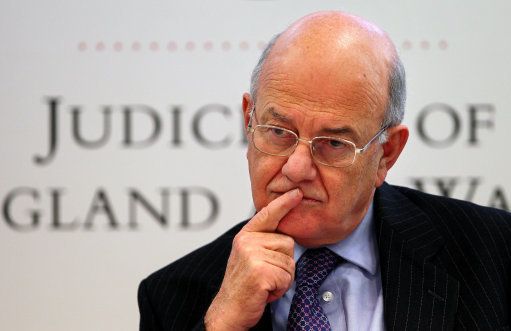Igor Judge during his time as Lord Chief Justice. Photo: Gareth Fuller/PA Archive/PA Images
This evening MPs will vote on Theresa May’s Brexit deal. The political and constitutional implications could not be more profound.
In an interview with Prospect Igor Judge, who was Lord Chief Justice from 2008 to 2013, weighed in on the fundamental questions thrown up by Brexit.
Commenting on this evening’s ballot, Judge said he would have preferred a “free vote,” with party leaders permitting MPs to vote with their consciences, not whipped. “If you had a free vote then each MP would be accountable to his or her constituents,” he said, and left to “make up his or her mind.”
“In my view there should be no whipping on these issues—but I know perfectly well that’s idealistic.”
Prior to his appointment as Lord Chief Justice and Head of the Judiciary of England and Wales, Judge was the first President of the Queen’s Bench Division, a division of the High Court. Now 77, he sits in the Lords as a crossbencher.
With parliament in meltdown, some Remainers would like a second referendum. Judge dismissed this option, saying: “I don’t think it would help.” There could also be “a long political route about what the referendum question should be.” Britain would be squabbling over the wording, “in the meantime, there’s an act of parliament that says we come out on the 29th of March and how would it look to Europe? How would it look to the world?”
“We have 650 members of parliament and it’s their responsibility to sort this out.”
Judge also weighed in on the controversial Northern Ireland backstop designed to prevent a hard border, calling for a time-limit: “I cannot think why that shouldn't have the equivalent of a sunset clause to it. Which after whatever time you agree… it may be 12 months, 18 months, ten years… it is agreed that either the EU or us can say ‘thank you very much. It's now over.’ So there should be a time limit on how long it should operate.”
Judge’s full comments—including an intervention on cuts to legal aid—will be published next week.












